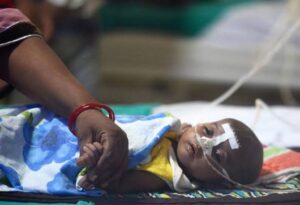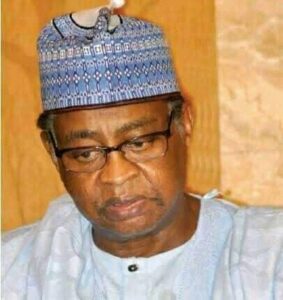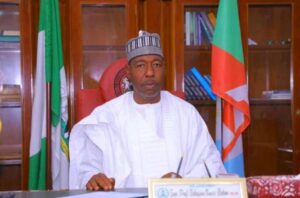
By Muhammad Sani Abdullahi
The Government of Nigeria does not fully meet the minimum standards for the elimination of trafficking but is making significant efforts to do so. These efforts included continuing efforts to train government officials and raise public awareness, collaborating with international organizations and NGOs to establish anti-trafficking task forces in Borno and Ekiti states, using new technologies to enhance collection of victim testimony, prosecuting three government officials complicit in human trafficking, and drafting memoranda of understanding (MOUs) to improve coordination between government agencies.
However, the government did not demonstrate overall increasing efforts compared to the previous reporting period. Nigerian security forces recruited and used at least two children in support roles during the reporting period.
In addition, there continued to be reports of security officials sexually exploited, including through sex trafficking, IDPs in government-run camps in and around Maiduguri. The government did not hold criminally accountable any military officials for exploitation of IDPs in sex trafficking or recruitment and use of child soldiers.
In addition, the government did not hold any Civilian Joint Task Force (CJTF) members criminally accountable for sex trafficking of IDPs or past recruitment and use of child soldiers.
The Nigerian military did not always provide trafficking victim protections to female and child trafficking victims allegedly associated with insurgencies and the government convicted fewer traffickers.
Therefore Nigeria was downgraded to Tier 2 Watch List. Cease Nigerian military recruitment and use of child soldiers, including in support roles, and refer all children to appropriate care. In order to bring an end to the menace of Human Trafficking, thellowing measures should be put in place;
Hold complicit officials, including security officials and CJTF members, accountable for trafficking offenses, including for the sex trafficking of IDPs and unlawful recruitment and use of child soldiers.
Improve access for humanitarian actors to provide assistance to trafficking victims, including in IDP camps and military facilities holding potential trafficking victims.
Allow independent criminal investigations into alleged trafficking abuses among security officials and CJTF members in northeast Nigeria.
Expand existing efforts to identify trafficking victims among vulnerable groups such as IDPs, returning migrants, children in domestic service, and any North Korean workers in Nigeria; investigate cases; and implement preventative measures.
Finalize and implement the draft protocol to hand children identified in armed conflict over to civilian authorities, screen for trafficking among those detained, and provide appropriate care.
Vigorously investigate, prosecute, and convict traffickers—including labor traffickers and those who force children to beg—and impose sufficiently stringent sentences involving imprisonment.
Work with CJTF and the UN to implement fully the child soldier action plan, confirm all children have been removed from the CJTF’s ranks and, if they have not, cut provision of financial and in-kind support to CJTF.
Facilitate training for judges on the 2015 law, specifically the provision prohibiting the issuance of fines in lieu of imprisonment in collaboration with international partners.
Reevaluate the National Agency for the Prohibition of Trafficking in Persons’ (NAPTIP) closed shelter policy and ensure authorities take a victim-centered approach to victim care.
Increase the capacity of Nigerian embassies to identify and provide assistance to victims abroad, including by providing replacement travel or identity documents free of charge.
Strengthen international law enforcement cooperation to prevent and investigate child sex tourism.
The government maintained overall anti-trafficking law enforcement efforts, but there were continued reports of, and insufficient efforts to address, government officials’ complicity in human trafficking offenses.
However, the government initiated some prosecutions against allegedly complicit officials and improved some law enforcement capacities. The Trafficking in Persons Law Enforcement and Administration Act (TIPLEAA), as amended in 2015, criminalized sex trafficking and labor trafficking and prescribed a minimum penalty of two years’ imprisonment and a fine of 250,000 naira ($690) for both sex and labor trafficking; the minimum penalty for sex trafficking increased to seven years’ imprisonment and a fine of one million naira ($2,770) if the case involved a child victim.
These penalties were sufficiently stringent and, with regard to sex trafficking, commensurate with those prescribed for other serious crimes, such as kidnapping. The Edo State anti-trafficking law criminalized sex trafficking and labor trafficking and prescribed a minimum penalty of five years’ imprisonment and a fine of one million naira ($2,770) for both sex and labor trafficking; the minimum penalty for sex trafficking increased to seven years’ imprisonment and a fine of one million naira ($2,770) if the case involved a child victim.
Authorities identified Nigerian trafficking victims—often exploited by Nigerian traffickers—in at least 36 countries in Africa, Europe, and the Middle East during the reporting period. Nigerian women and girls are subjected to sex trafficking within Nigeria and throughout Europe, including in France, Italy, Spain, Austria, and Russia; in 2017, an international organization estimated 80 percent of all female Nigerian migrants in Italy are or will become sex trafficking victims. NGOs reported that while Italy was primarily the destination for Nigerian trafficking victims, trafficking networks are shifting to other destinations such as France and Spain; in 2018, 48 percent of trafficking victims identified in France were Nigerian. In 2015, a foreign government reported that with the exception of internal trafficking within the EU, Nigerian nationals are the most common trafficking victims in the EU.
Following relaxed visa requirements for the 2018 World Cup in Russia, traffickers fraudulently recruited Nigerian women for jobs in Russia and later exploited them in sex trafficking.
Historically, the majority of Nigerian trafficking victims in Europe have come from Edo State, via Libya; however, French authorities reported an increasing number of Nigerian trafficking victims originating from northern states. Media and an international organization reported traffickers recruited women and girls from IDP camps in Northeast Nigeria for ostensibly legitimate jobs in Europe but exploit them in commercial sex in Niger, North Africa, the Persian Gulf, and Europe. Nigerian sex traffickers operate in highly organized criminal webs throughout Europe, and many sex trafficking victims begin to work for their traffickers in exchange for leaving sex trafficking themselves.
Before departure for work abroad, many Nigerian women participate in a traditional ceremony with a juju priest; some traffickers exploit this tradition and tell the women they must obey their traffickers or a curse will harm them, which prevents victims from seeking assistance or cooperating with law enforcement. In March 2018, the Oba of Benin—the most powerful religious ruler in Benin City—issued a curse on sex traffickers and revoked all juju spells that had been administered by priests to bind victims to their traffickers; there were some reports traffickers were now performing the juju ceremonies in neighboring states such as Delta state. While some sex trafficking victims arrive in Europe believing they will be in commercial sex, traffickers coerce them to stay in commercial sex by changing the working conditions and increasing victims’ travel debts. Some victims’ parents encourage them to obey their traffickers and endure exploitation to earn money.
Nigerians are exploited in Libya by both Libyans and Nigerians in forced labor in construction, agriculture, and commercial sex in Tripoli, Sabha, Benghazi, and Misrata. Lured by the promise of reaching Europe, traffickers keep victims in “control houses” or “prostitution camps” located on the outskirts of Tripoli and Misrata until they can repay travel debts; sometimes before victims repay the debt, traffickers sell them again.
Some trafficking victims in Libya reported Nigerian embassy officials in Tripoli asked for payment before removing victims from Libyan detention camps. Between April and November 2018, an international organization repatriated 3,160 Nigerians from North Africa, 80 percent of whom were repatriated from Libya. In 2017, the international organization repatriated more than 4,316 Nigerians from Libya, some of whom were trafficking victims or vulnerable to trafficking; 4,000 had departed from Edo State.
There were reports of re-trafficking among the trafficking victims repatriated from Libya. ISIS has captured Nigerian women and girls in Libya and exploited them in sexual slavery.
As in past years, reports continue to indicate government officials and security forces commit widespread sexual exploitation, including sex trafficking. Such exploitation is a major concern across the Northeast, including in informal IDP camps and all of the 13 formal, state-run IDP camps in and around Maiduguri, the Borno state capital, which hosts IDPs affected by the ongoing conflict with Boko Haram and ISIS-WA. “Gatekeepers” in control of some IDP camps, at times in collusion with Nigerian policemen and soldiers, reportedly force women and girls to provide sex acts in exchange for food and services in the camps.
In July 2016, a Nigerian research organization surveyed 400 IDPs in Adamawa, Borno, and Yobe states, and 66 percent said camp officials sexually abused women and girls, some of which constitutes sex trafficking.
As media previously reported, there were continued reports that camp officials and members of security forces, including some individual Nigerian military personnel, used fraudulent or forced marriages to exploit girls in sex trafficking. Some Nigerian military personnel and CJTF members promised female IDPs jobs but instead took them to military barracks for sexual exploitation by Nigerian military personnel. Various NGOs and news outlets report that children in IDP camps are victims of labor and sex trafficking, and some alleged that government officials managing the camps are complicit in these activities.
Media and an international organization reported Cameroonian soldiers coerced Nigerian female refugees in a Cameroon refugee camp to have sex in exchange for food or protection from deportation. During the reporting period, an NGO reported at least 10 soldiers in Giwa Barracks coerced female detainees to perform sex acts in exchange for basic necessities such as food and soap.
Boko Haram and ISIS-WA continued to forcibly recruit, abduct, and use child soldiers as young as 12 as cooks, spies, messengers, bodyguards, armed combatants, and increasingly as suicide bombers in attacks in Nigeria, Cameroon, and Chad. In 2018, Boko Haram used at least 48 children as human bombers, compared with 158 used in 2017.
The groups continue to abduct women and girls in the northern region of Nigeria, some of whom they subject to domestic servitude and forced labor. Boko Haram routinely forces girls to choose between forced marriages to its fighters for the purpose of sexual slavery or becoming suicide bombers. In some cases, Boko Haram forced child soldiers to marry one another.
International organizations continue to express concerns about the arrest and detention of children by the Nigerian military for alleged association with Boko Haram. An NGO reported that between January 2013 and March 2019, the Nigerian military unlawfully detained more than 3,600 children for alleged association with armed groups. An NGO reported children detained for association with armed groups in Maiduguri Maximum Security Prison in Borno state were detained with adult inmates; inmates in the prison allegedly exploited the children in commercial sex rings in the prison.
During the reporting period, Nigerian security forces recruited and used at least two boys between the ages of 13-17 years old in support roles fetching water, firewood, and cleaning, near Mafa and Dikwa in Borno state. In previous reporting periods, the Nigerian military unlawfully used children as young as 12 years old in support roles such as messengers and porters.
In previous reporting periods, international organizations had reported Nigerian military personnel had used four boys between the ages of 14 and 16 years old in Giwa Barracks in support roles between May 2016 and March 2018.
The Nigerian military interrogated children in detention for later use as collaborators to identify Boko Haram members among newly arrested persons. As reported by the Secretary-General of the UN, as of May 2016, Nigerian military personnel were using four boys between ages 14 and 16 in support roles. The Nigerian military also conducted on-the-ground coordination with the CJTF, a non-governmental self-defense militia that received state government funding and recruited and used child soldiers in the past. There were no verified reports during the reporting period that the CJTF recruited or used child soldiers.
However, in past years, media reported that the CJTF also used some child trafficking victims recovered from Boko Haram to lead CJTF and army personnel to Boko Haram camps, putting the children at serious risk for retaliation and denying them trafficking victim care. In past reporting, CJTF recruited children as young as 12 to man checkpoints, conduct patrols, search and arrest suspected insurgents, guard IDP camps, and gather intelligence, at times in collaboration with the Nigerian military. As of March 2019, CJTF and an international organization compiled a list of 3,737 children potentially associated with CJTF and were in the process of interviewing the children and separating those associated with the group.


